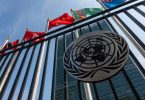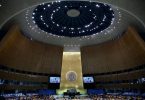Adil Hussain
The word “crisis” is very common to all the humans particularly to those who are living in Pakistan. Since its establishment, there is a prolonged list of issues pertaining to economy, provincial Autonomy, terrorism and the growing concerns for social welfare in the state, that invited a great deal of attention from different sections of society to get out of this misery. The nature of these problems and the possibility of their solutions have been widely discussed, repeated with modifications and presented for broader consensus but brought little change in the existing order. Partly because of the structural arrangements of the system and partly due to the absence of an objective and a multidimensional approach, the ideas launched by so many thinkers ultimately failed to make their way into the system.
One of the most debated issue in Pakistan is the economic stability. Economic stability means to devise a comprehensive system for economic progress and development that can attract investment both from foreign and domestic entrepreneurs to help the state and its citizens in improving their standard of living. The consciousness of this economic prosperity makes the cornerstone of the political programs of all the parties on the basis of which they campaign for election to get into the public office.
Mostly, every political party carries its own version of economic revival which often leads to the inevitable conflict in the highly polarized society of Pakistan. Majority of these plans are need base, short-lived and center oriented. Such plans promotes inequality, raise grievances and invites strong hostility from the federating units which ultimately results in failure. Conflict arise when the government allocate more or less resources to a particular unit and mistreat the remaining portions, thus increases regional disparities. This regional disparity accompanied by the growing demand for provincial autonomy was the real motive behind the separation of East Pakistan, now Bangladesh.
This conflict over resource distribution between the followers of a strong and week center is getting more attention as the problems of inflation, unemployment, poverty, illiteracy, health, poor infrastructure, terrorism and religious extremism are deepening their roots in society. According to the most recent Report of the World Bank, 40% of Pakistani are still illiterate, over 20 million children of school-age are out of school, poverty ratio is almost 40% and health indicators including malnutrition levels remains grim. This is simply what the World Bank refer to as a “silent, deep human capital crisis”.
Progress and well being based on inequality is both ineffective and short lived. The enrichment of one province at the expense of others is not only detrimental to economic stability but it also airs the prospects of regionalism, which, if joined by ethnic priorities would badly shake the very foundation of the state. For removing such grievances and tackling the more urgent issues like financial shares, poverty and terrorism, it is essential to devise an agreed and workable mechanism that can overcome these problems with iron hands from a very close distance. The central government, acting as the custodian of the state should need to assist the province of Khyber Pakhtunkhwa and Balochistan in dealing with these vital issues instead of acting directly from Islamabad. The “hotspot service”, in those areas which are most directly exposed to the greater vulnerabilities of terrorism, poverty and hunger should need to be taken under consideration for greater output. The best way to handle these crisis is to allocate more resources to all those units which needs the most.
Faced with the bitter legacy of the East Pakistan crisis and the stronger opposition from the National Awami Party ( now ANP) and the like minded, Z. A. Bhutto, skillfully materialized the situation and accorded greater weightage to the long awaited provincial Autonomy, for which Mr. Jinnah had taken a much responsible stance throughout his political career. The 1973 constitution provides for three key forums___ the National Finance Commission, the Council of Common Interest and National Economic Council, to deal with the regulation of financial distribution, conflict resolution and to coordinate in the planning and execution of the socio-economic programs. Started in 1974, the initial population based NFC awards failed in satisfying the grievances of the provinces. However, The 7th NFC award of 2009, based on Population 82%, Backwardness 10%, Inverse population density 5% and Revenue collection 12.7%, with 57.5% provincial shares was cordially welcomed and unanimously approved by all the concerned parties.
This widely recognized formula tremendously worked in certain areas and enhanced provincial output however the central government, forced by the International Monetary Fund, is looking forward for its rollback. Those who urges for readjustment believe that the resource allocation of the award was unrealistic: the provinces are wasting resources and did very little in the areas of taxation, agriculture and the real estate. Former finance minister, Miftah Ismail, points out that the provinces give 455% increase in payroll expenses and 480% increase in developmental spending and urged for dramatic changes in the existing formula which has left the center with nothing good. While the government with the newly created Special Investment Facilitation Council, is striving for economic revival, the provinces shows little interest to reduce their share in favour of the more lavish and expensive center.
Every action brings with it new challenges for structural arrangements. Though the seventh NFC Award and the Eighteenth Constitutional amendment have successfully tackled much of the grievances, the provinces failed to ensure the further devolution of power to local governments which is contrary to the basic motive of the 18th amendment. Without empowering local governing bodies and equipping these units with the highly professional and skilled officers, the fruits of this badly needed program would hardly be achieved. If failed in modifying the system , the most logical consequence for the provinces would be the greater interference of the federal government which will gradually result in the re-centralization of the system.
Problems are visible but the approach to their solutions makes them more complicated. The center-province conflict, characterized mostly by personal ambitions, political opposition, hate and ignorance of the conflicting parties blocks the way forward. This has been the case with the PTI led Pakhtunkhwa and the central government. Though the province has legitimate concerns about some issues regarding the allocation of provincial shares, fighting terrorism and the like, the more inflexible and rigid style of dealing with each others have hampered the process of any meaningful output. Without developing a political culture based on compromise, respect and maximum flexibility the situation would become even more dangerous in the near future.
While the country is suffering from weakening economic resurgence, the growing differences of opinions, leading to political instability would face the country with much deeper crisis. A National Consensus Dialogue, based on a more Flexible and compromised approach is essential to deal with the most outstanding issues of Transparency and accountability, strengthening the Local Government institutions, strengthening of ECP, reforming NAB, and for addressing the grievances and problems that surrounds the NFC award for building political and economic stability that can help the state to take a more balanced stance both domestically and abroad in the changing situations.
Writer can be reached at Adilkhanonline899@gmail.com







